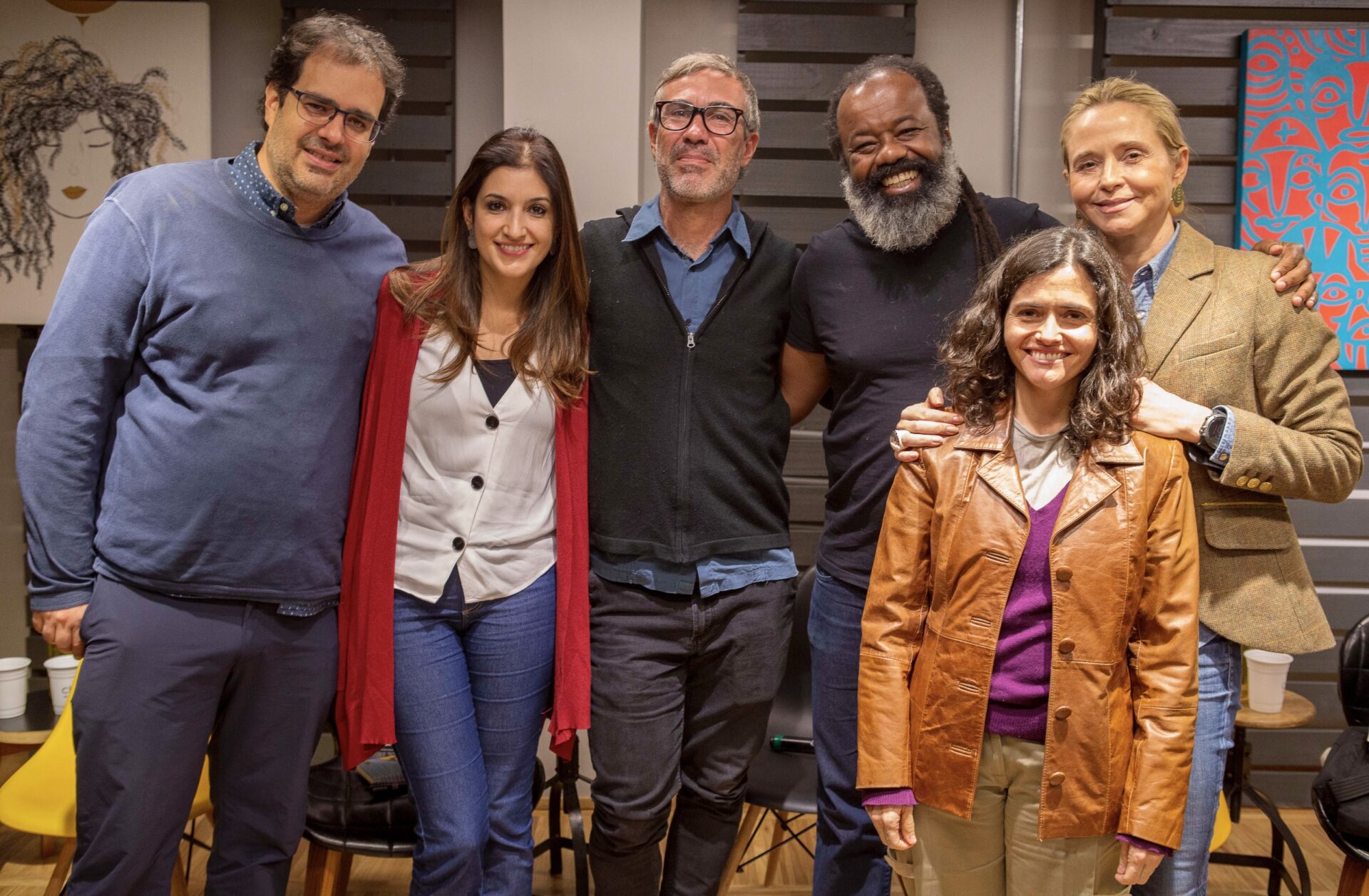In one of the events celebrating the two years of CIVI-CO, the space for social impact businesses where Humanitas360 is based in São Paulo, a debate with public security experts gathered the lawyer and executive director of Instituto de Defesa do Direito de Defesa (Institute to Defend the Right of Defense) Marina Dias, the journalist Antonio Junião, the professor of Fundação Getúlio Vargas Rafael Alcadipani and the director of Fórum Brasileiro de Segurança Pública (Brazilian Forum for Public Security), Samira Bueno. In the debate, which was mediated by the researcher associated to the University of São Paulo and journalist Bruno Paes Manso, the five brought different perspectives to discuss the current situation of public security policies and violence reduction in Brazil.
Rafael Alcadipani, a specialist in police studies, highlighted that the situation of police forces is that of complete abandonment. “The Brazilian Forum [for Public Security] released interesting and shocking data about black people in Brazil in which you see that in the police itself it is black people who die the most.” He also remembered that there is an ideologized, unscientific and outdated training of new professionals. From the perspective of criminal justice, Marina Dias drew attention to recent proposals by the current government that tend to increase violence, like the plea bargain, a kind of “fast food trial”. She stated: “If we think about who are being arrested, caught red-handed by proactive policing with small amounts of drugs, they will be pressured to accept agreements with insufficient evidence, many with only police testimony, and the judicial system approves this very fragile evidence.”
Samira Bueno brought the perspective of violence against women to the debate. She stressed that while statistics from recent years show an apparent drop in rates such as homicides and robberies in large cities, data on violence against women has increased significantly in the same period. “Rape, sexual violence in its different forms and femicide are on the rise. Unlike what the press often portrays, femicide is not a crime of passion. It comes from a trajectory of violence that could have been avoided if effective public policies looked to these women,” she said.
Representing Ponte Jornalismo collective, an independent media vehicle that covers public security, Antonio Junião underscored that journalistic work is essential to include in the debate the perspective of the population who suffer from violence perpetrated by representatives of the state on a daily basis. “Public security has always been little discussed, and there is no active listening from civil society,” he stated. Junião also remembered that racial discussion is essential to the subject matter: “We see society currently discussing racism, but the judicial system is not discussing racism. Oppression is racialized; therefore the debate must also be racialized.”
Analyzing failures and successes of public security policies in the more than 30 years of Brazil’s 1988 Constitution, the researchers also highlighted a partially “arrogant” view – as Alcadipani put it – of progressive sectors of society that were unable to communicate with those who do not share those views. On the other hand, Marina Dias and Antonio Junião stated that society is reflecting more and more on the periphery’s experience as one of the ways of thinking about the effective actualization of this democratic system. “When we look at those who are grappling with the criminal justice system, when we think of democracy in the outlying territories, one wonders whether access to democracy ever really existed. In criminal justice, we have been smelling gas for a long time,” says Dias. “If we want to be a modern and contemporary society, we can not go on with medieval policies and practices. Also, we can not properly discuss this theme without mentioning our own privileges,” summed up Junião.
(Tradução: Andrei Reina)





